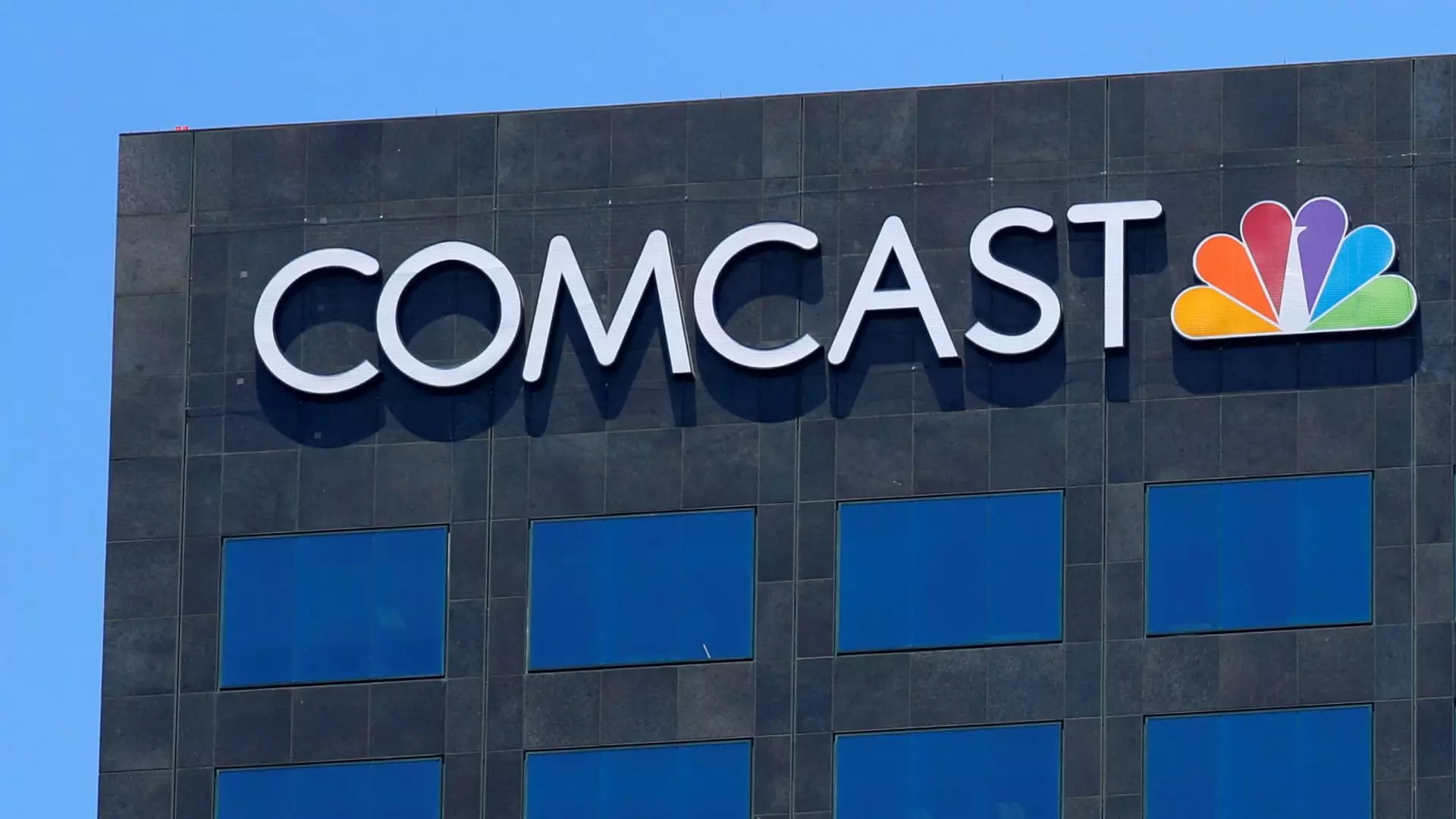Comcast’s Strategic Move: The Spinoff of Cable Networks

As Comcast navigates the shifting landscape of media consumption, a significant change is on the horizon with its decision to spinoff its cable network channels. This strategic move, reported by individuals with knowledge of the situation, is expected to unfold over the next year, with an announcement potentially imminent. The implications of this restructuring could be far-reaching for the company and the broader media ecosystem.
The newly formed entity, separating from Comcast, will be helmed by Mark Lazarus, a seasoned executive currently chairing NBCUniversal’s media group. His leadership is anticipated to instill a level of continuity and expertise as the company transitions to its independent operation. Anand Kini, the Chief Financial Officer of NBCUniversal, will take charge of financial oversight and operational management, ensuring a robust financial framework for the new organization.
Interestingly, despite the spinoff, Comcast Chairman and CEO Brian Roberts will retain a significant voting presence, although he will not hold a formal officer or board position in the new company. This unique arrangement allows Roberts to influence the new entity’s strategic direction while distancing himself from day-to-day governance, thereby positioning Comcast to explore other ventures.
The motivation for this separation primarily stems from the shifting consumer preferences away from traditional pay TV bundles in favor of streaming services. As audiences gravitate towards platforms like Peacock, Comcast’s investment in streaming becomes increasingly vital. The company acknowledges the need to adapt its business model to contemporary viewing habits. With millions of subscribers leaving traditional cable, this decision reflects an urgent pivot to enhance agility and competitive edge in an evolving market.
Moreover, the spinoff provides the new entity with improved flexibility in pursuing alliances, potential mergers, or even divestment strategies. In a media landscape rife with consolidation, this maneuver offers opportunities for collaborations that could amplify the reach and profitability of the cable networks.
Despite the challenges posed by cord-cutting, traditional cable networks maintain their status as lucrative assets. Recent financial reports indicate a substantial increase in revenue, with Comcast’s media segment witnessing nearly 37% growth, amounting to $8.23 billion, significantly bolstered by events like the Olympics. This indicates that while the audience dynamics are changing, traditional networks still possess substantial value.
However, the separation process will not be instantaneous. The company will need to deliberate on various operational matters, including licensing agreements that might affect relationships between channels like CNBC and MSNBC with NBC News. These discussions will be crucial in ensuring seamless operational continuity post-spinoff.
Impacts on NBCUniversal’s Operations
The management structure at NBCUniversal is also undergoing a transformation in light of this spinoff. Donna Langley is set to ascend as the chairman of NBCUniversal Entertainment and Studios, while Matt Strauss will oversee NBCUniversal Media Group’s operations, encompassing sports and advertising sales. Cesar Conde will maintain his leadership role over NBCUniversal News Group, reaffirming stability amidst the changes.
Interestingly, not all networks are included in the spinoff; Bravo will stay under Comcast’s wing due to its integration with Peacock. This reflects a strategic decision to keep assets that significantly contribute to the streaming service’s content library.
The Broader Implications for the Media Industry
Comcast’s spinoff is emblematic of larger trends within the media industry. As streaming becomes the predominant means of consumption, traditional companies must recalibrate their strategies to remain relevant. This shift not only affects operational structures but also compels companies to rethink content distribution and viewer engagement strategies.
As this process unfolds, the industry will be keenly watching how Comcast positions its remaining assets and how the new entity navigates its path forward. The spinoff could signal a broader movement as more media conglomerates adapt to the transformative currents shaping viewer habits and preferences.
While Comcast faces inherent challenges in transitioning to this new operational model, the spinoff of its cable networks sets the foundation for a responsive and agile approach to an increasingly complex media landscape. The future beckons new opportunities as the company embraces this change, positioning itself strategically for the evolving demands of audiences.





